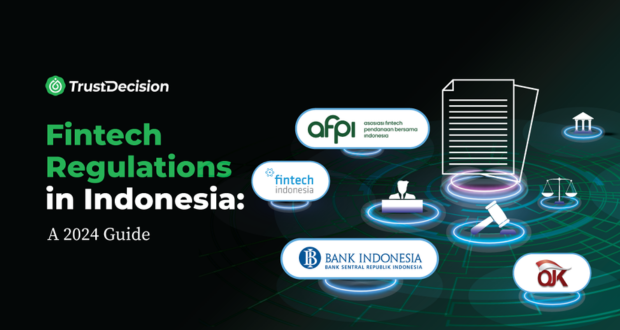The Impact of the Covid-19 Pandemic
The global Covid-19 pandemic has left an indelible mark on the fintech industry.
In APAC, the crisis acted as a catalyst for digital transformation, driving increased adoption of fintech solutions.
However, it also raised cybersecurity, data privacy, and fraud concerns. Regulatory bodies responded by revisiting their priorities and focusing on strengthening the regulatory framework to address these emerging risks.
Evolving Regulatory Approaches
Regulators across APAC have been swift to adapt to the evolving fintech landscape.
One notable trend is the move towards a more holistic approach to regulation.
Rather than merely responding to individual fintech innovations, regulators are increasingly looking at the broader ecosystem, considering how different technologies interconnect and their collective impact on the financial system.
Additionally, regulators are working collaboratively to harmonize regulations across borders. This approach aims to facilitate cross-border fintech operations, improve consumer protection, and create a level playing field for fintech firms.
Future Predictions and Challenges
Looking ahead, several predictions and challenges are worth noting.
- Increased Scrutiny on Data Privacy: With the rise in data-driven fintech services, regulators are expected to intensify their focus on data privacy and protection. Compliance with data privacy regulations such as GDPR and APAC-specific data protection laws will be paramount.
- Digital Identity Solutions: The development and adoption of digital identity solutions will continue to gain momentum. Regulators recognize the importance of secure and convenient identity verification in fintech, and we can expect more initiatives in this area.
- Strengthened Cybersecurity Measures: Cyber threats are evolving, and so are regulatory requirements. Fintech companies must invest in robust cybersecurity measures to protect sensitive financial data and customer information.
- Regulatory Sandboxes and Innovation Hubs: The use of regulatory sandboxes and innovation hubs will expand. These mechanisms provide fintech firms with a controlled environment to test innovative solutions while regulators closely monitor for compliance and consumer protection.
- Climate and ESG Compliance: Environmental, Social, and Governance (ESG) considerations are gaining prominence. Regulators may introduce ESG-related compliance requirements, particularly for fintech firms involved in investment and wealth management.
- Cross-Border Regulations: Navigating the complex landscape of cross-border regulations will remain challenging. Fintech companies operating in multiple APAC countries must develop strategies for compliance with varying rules and standards.
- Financial Inclusion: Regulators are increasingly emphasizing financial inclusion as a policy objective. Fintech firms that can demonstrate a commitment to expanding access to financial services to underserved populations may find regulatory support.
- Consumer Education: Regulators may collaborate with fintech firms to improve consumer education on financial products and risks. This partnership aims to empower consumers to make informed decisions.
As 2023 is coming to an end, the fintech industry in the APAC region will continue to thrive, driven by innovation and regulatory adaptations.
For industry leaders, proactively engaging with regulatory changes, staying informed about emerging trends, and collaborating with regulators will be essential to not only navigate the evolving regulatory landscape but also to leverage regulatory changes as opportunities for growth.
Fintech Regulation in Specific APAC Markets
Navigating the intricacies of fintech regulation in the APAC region requires a deep understanding of the unique characteristics and regulatory landscapes of individual markets.
The following regulatory environments in key APAC markets provide insights for CEOs, CMOs, and Heads of Digital in the fintech or payment industry who are eyeing expansion or looking to deepen their understanding of these markets.
India: Regulatory Landscape and Recent Developments
India, one of the world's fastest-growing fintech hubs, presents both significant opportunities and regulatory challenges. The Reserve Bank of India (RBI) is central in regulating fintech activities, including payment services and digital banking. Recent developments include the issuance of digital banking licenses to non-banking entities, opening doors for fintech firms to enter the banking sector.
India has also made strides in promoting financial inclusion through initiatives like the Unified Payments Interface (UPI) and Jan Dhan Yojana. However, fintech companies must navigate a complex web of data localization, privacy, and security regulations. Staying compliant with these evolving requirements is essential for success in the Indian market.
Southeast Asia: Navigating Diverse Regulatory Environments
Southeast Asia, comprising countries like Singapore, Malaysia, Indonesia, Thailand, and the Philippines, offers a dynamic fintech landscape characterized by diversity in regulatory approaches. Singapore, known for its fintech-friendly regulations and robust infrastructure, attracts numerous fintech startups.
In contrast, other countries in the region have adopted varying approaches to fintech regulation. Malaysia, for example, has embraced regulatory sandboxes to encourage innovation, while Indonesia has imposed stringent licensing requirements for fintech firms.
Each country has distinct licensing requirements and regulations for fintech activities like e-money issuance, digital banking, and P2P lending. Details are summarized below.

(source: Asian Development Bank)
Navigating the Southeast Asian market requires fintech companies to tailor their strategies to each country's unique regulatory landscape, ensuring compliance while leveraging growth opportunities.
Mainland China: Easing Regulatory Pressures
Mainland China remains a global fintech giant with a rapidly evolving regulatory landscape. The People's Bank of China (PBOC) and other regulatory bodies have introduced measures to curb risks in the fintech sector, particularly in peer-to-peer lending and online lending platforms.
Despite these regulatory pressures, China continues to foster fintech innovation, especially in areas like digital payments, blockchain, and artificial intelligence. Foreign fintech firms entering the Chinese market must navigate stringent data localization and partnership requirements while complying with evolving regulatory frameworks.
Overall, Fintech regulation across specific APAC markets is a nuanced journey, influenced by each country's economic, cultural, and political factors. C-suite and digital leaders of the fintech industry must approach these markets with a tailored strategy that prioritizes compliance while harnessing each market's unique growth opportunities.
Reference:
Alan Anwar - Four Factors Affecting the Growth of Fintech in Asia
Bloomberg - APAC regulatory outlook 2023
Ian Herbison - Regulatory Dynamics for FinTech in Asia Pacific
Continue part 4: Specialization, Collaboration, and Diversification

-%2520Trends%2520And%2520Changes%2520In%2520Fintech%2520Regulation%2520For%25202023.jpeg)












